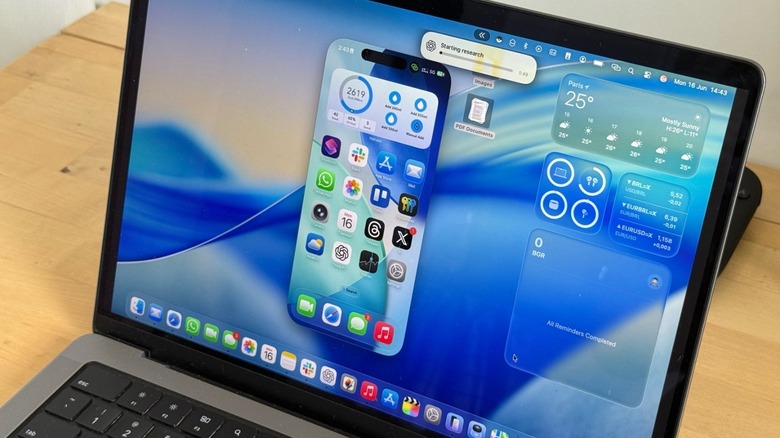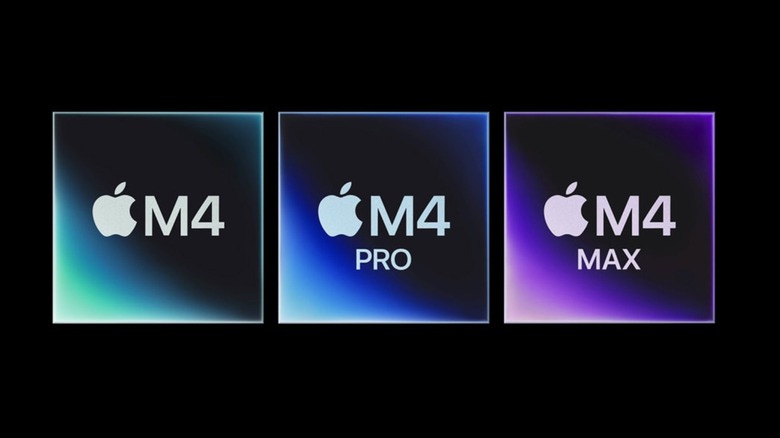Apple May Tap Intel To Manufacture Future M-Series Mac Chips
After the WWDC 2025 keynote, Apple revealed it's finally ditching support for Intel Macs starting with macOS 27 in the fall of 2026. While this change is due to the successful release of the company's own silicon processors, it doesn't mean that Apple is going to completely eliminate its relationships with Intel.
At least, that's what GFKH analyst Jeff Pu believes. In a note seen by BGR, Apple is keeping a close eye on Intel's long-anticipated 14A manufacturing process, as it could be used to make some M-series chips as soon as 2028.
Currently, TSMC is the only manufacturer of Apple's M-series chips. The company uses the second-generation 3nm manufacturing process on chips for the iPhone 16 and M4 Macs. Later this year, Apple is expected to use a third-generation process, ahead of a more advanced 2nm technology in 2026. While Apple has already partnered with TSMC to get access to the first 1.4nm chips by 2028, it seems Apple might tap Intel to manufacture some of them as well.
Apple's possible partnership with Intel could benefit future M-series Macs
According to Jeff Pu, "the next focus Intel 14A process will incorporate second-generation RibbonFET and PowerDirect, marking a technological evolution built upon the foundation of the PowerVia introduced in Intel's 18A. Targeting both AI and edge applications, Intel has already provided early versions of the 14A PDK to key customers, with several expressing interest in producing test chips. We anticipate NVIDIA's gaming GPU (low-end version) and Apple's M series to emerge as adopters of Intel 14A."
Comparing the 18A to the 14A, the newer manufacturing process is expected to achieve a 15-20% performance gain, a 30% improvement in transistor density, and 25% reduction in power consumption. Mass production is expected to begin in 2028.
That said, if Apple taps Intel to manufacture its future M-series chips, this could make production cheaper, as TSMC wouldn't be the only company responsible for making Apple's best chips. In addition, this could also make upcoming processors even better, as both manufacturers would fight to get the latest technologies and offer them to Apple.

